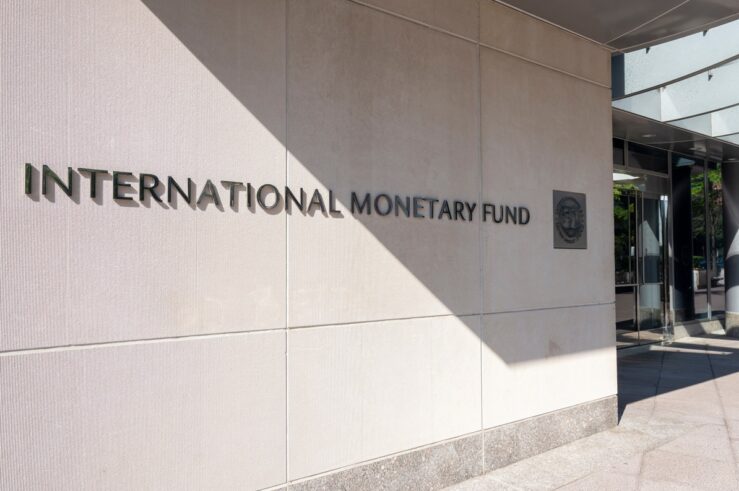Showing results for: “digital markets act”
The FTC World Keeps On Turning
You’re no doubt aware that we’ve had a presidential election since my last column. Agency news seems pallid, in comparison, but those of you who’ve come here looking for deep insights into what it all means are liable to be disappointed, not to mention zero in number. “The Meaning of Life” is a movie by ... The FTC World Keeps On Turning
The AI Legislative Puzzle
With Donald Trump’s victory in this week’s presidential election, the federal government’s approach to the regulation of artificial intelligence (AI) stands at a crucial inflection point. While there may be pressure to rush through AI legislation during Congress’ upcoming lame-duck session, such haste could prove counterproductive for U.S. leadership in AI development. Instead, this transition ... The AI Legislative Puzzle
Assessing the Government’s Monopolization Case Against Visa
The U.S. Justice Department (DOJ) has initiated an antitrust monopolization case against Visa for various practices related to its debit-card services. The complaint centers on two primary theories of harm. The first is that Visa offers volume discounts in a manner that locks in merchant banks (or “acquirers”) into Visa’s debit-card network, which deprives rival ... Assessing the Government’s Monopolization Case Against Visa
Should the GDPR Prohibit AI?
The European Data Protection Board’s (EDPB) Nov. 5 stakeholder consultation on AI models and data protection—organized to gather input for an upcoming Irish Data Protection Commission opinion under Article 64(2) of the General Data Protection Regulation (GDPR)—showcased significant lingering disagreement on how the GDPR should apply to AI. While the event was not intended to ... Should the GDPR Prohibit AI?
What the IMF Gets Wrong About Costa Rica’s Payment-Card Caps
The Asamblea Legislativa de la República de Costa Rica (Costa Rica’s legislature) moved in 2020 to empower the Banco Central de Costa Rica (BCCR), the nation’s central bank, to impose price controls on fees charged by both payment-card issuers and acquirers. I have written previously about the perverse effects these price controls can generate (here, ... What the IMF Gets Wrong About Costa Rica’s Payment-Card Caps
The View from India: A TOTM Q&A with Shivanghi Sukumar
Could you tell us a bit about your background and how you got interested in digital competition regulation? I am a competition lawyer, and have been practicing competition law in India since the early days of its enforcement. A big part of my work has been related to the enforcement of behavioral provisions, and I’ve ... The View from India: A TOTM Q&A with Shivanghi Sukumar
The FCC’s Quixotic Quest to Regulate Broadband Data Caps
Internet use has soared since the COVID-19 pandemic. Between 2019 and 2022, average monthly data usage increased from 344 GB to 586 GB per month—a 70% increase. In 2019, only 16% of subscribers were on speed tiers of greater than 200 Mbps. By 2023, 74% had such speeds, and a third of subscribers had speeds ... The FCC’s Quixotic Quest to Regulate Broadband Data Caps
Weighing DOJ’s Proposed Remedies for Google’s Monopolization
The U.S. Justice Department (DOJ) has proposed remedies to a federal judge who held that Google illegally monopolized web search. In reviewing the DOJ’s recommendations, the judge should take into account the downsides of particular remedies, as well as their potential benefits. The judge should be careful not to impose remedies that could reduce innovation ... Weighing DOJ’s Proposed Remedies for Google’s Monopolization
A Tale of Two App Stores
Dueling federal antitrust holdings dealing with app stores could have significant impacts on the future of competition in mobile-internet services. Going forward, antitrust policy in this area should focus on promoting consumer welfare and innovation, rather than the interests of particular competitors. App Store Basics Google and Apple compete vigorously for consumer favor in smartphones. ... A Tale of Two App Stores
Antitrust at the Agencies: PBM Madness at the FTC, Part 2
As I noted in my last post, the Federal Trade Commission (FTC) announced Sept. 20 that it had filed a complaint: against the three largest prescription drug benefit managers (PBMs)—Caremark Rx, Express Scripts (ESI), and OptumRx—and their affiliated group purchasing organizations (GPOs) for engaging in anticompetitive and unfair rebating practices that have artificially inflated the ... Antitrust at the Agencies: PBM Madness at the FTC, Part 2
Preemptive Digital-Platform Rules Are Not Good Competition Policy, But They Were Never Meant to Be
Inspired by the European Union’s Digital Markets Act (DMA), a growing number of jurisdictions around the globe either have adopted or are considering adopting frameworks of preemptive digital-competition rules (DCRs) that would more closely regulate the business models of such platforms as Google’s search engine and Amazon’s e-commerce business. The Turkish government may soon join ... Preemptive Digital-Platform Rules Are Not Good Competition Policy, But They Were Never Meant to Be
FTC Sues ‘Big 3’ Pharmaceutical Benefit Managers
My last post highlighted a July 2024 Federal Trade Commission (FTC) interim staff report that was critical of pharmaceutical benefit managers (PBMs)—so-called “middlemen” firms that specialize in negotiating with drugmakers for rebates on the list prices of drugs. I explained that the interim report’s analysis is at odds with economic research that delineates the substantial economic benefits ... FTC Sues ‘Big 3’ Pharmaceutical Benefit Managers
















